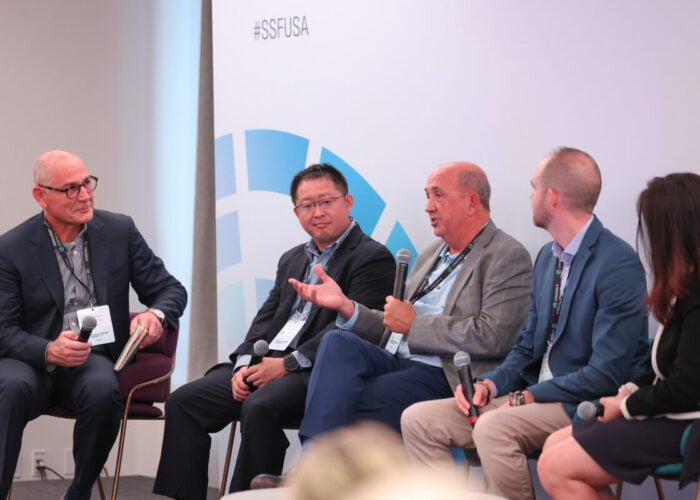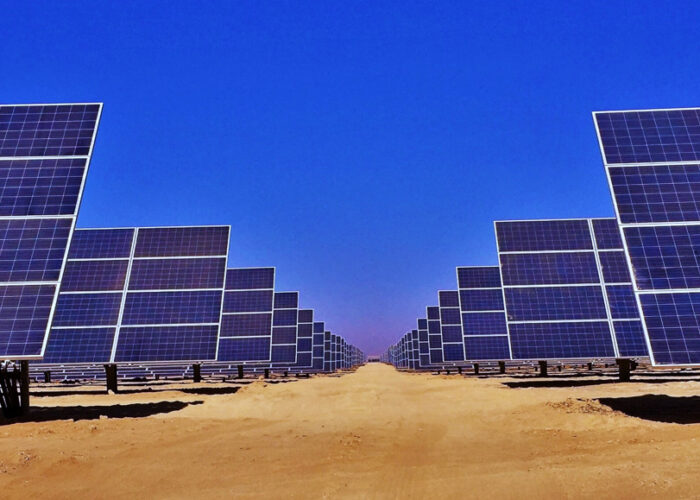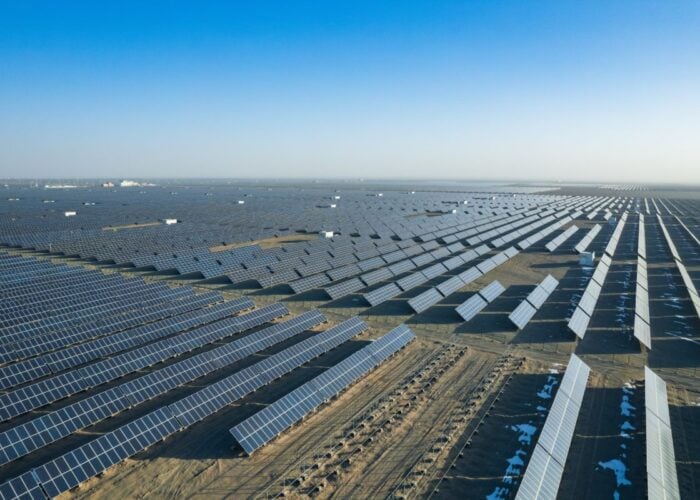Natural gas firms that lost against a solar project in a competitive bidding process have accused the overseeing judge of handling the process unfairly.
New project proposals for Minnesota utility Xcel, saw an administrative law judge rule a solar project more cost competitive than competing natural gas plant proposals.
Try Premium for just $1
- Full premium access for the first month at only $1
- Converts to an annual rate after 30 days unless cancelled
- Cancel anytime during the trial period
Premium Benefits
- Expert industry analysis and interviews
- Digital access to PV Tech Power journal
- Exclusive event discounts
Or get the full Premium subscription right away
Or continue reading this article for free
The ruling, by administrative law judge, Eric Lipman, took months of review and is the first time in the US that unsubsidised solar energy has been officially ruled to be a better deal for ratepayers than natural gas.
At the end of January, the Minnesota Commerce Department, utility Xcel, and natural gas project proposal contenders, Invenergy and Calpine teamed up to submit comments on the ruling.
The team advised the Commission to snub the first solar ruling.
They question the assumed electrical demand used by the judge, as the forecast may be too low compared to others that account for economic recovery spurring higher demand.
Bill Grant, deputy commissioner of energy and telecommunications at the Minnesota Department of Commerce told the Minnesota Star Tribune the forecast was an “untested and unusually low forecast for future sales growth”, stating the judge “really didn’t consider what would happen if the economy recovers”.
Xcel provided a Spring 2013 forecast which repeated an uncertainty to energy demand, the Commission completed a differing, March 2013 report, the judicial ruling was presented with, and took both forecasts into account.
Gas argument
The complainants have raised the issue of intermittency at peak energy demand as an objection, and Xcel has argued building overcapacity with a gas plant would mitigate the need to buy expensive energy from the wholesale market instead.
Xcel has questioned Geronimo’s prices which are lower than other market quotes of US$125 per MWh for solar. These quotes were based in other jurisdictions however.
The Department of Commerce, Xcel and Invenergy also claimed the Geronimo project is favoured in light of Minnesota’s Solar Energy Standard (SES), which requires 1.5% of energy distributed by state utilities to be solar by 2020.
Despite the bidding allowing for all energy sources to compete, the Department claims Geronimo has unfairly beat other solar developers to the SES allocation. The SES sets a minimum, not maximum solar energy requirement however, so other developers are not excluded once the 1.5% is allocated.
Unfair Process
Invenergy told PV Tech in a statement it owns and operates solar, is not against solar and does not have a preference on any energy source, but takes “exception” in “changing the rules mid-game”.
Invenergy argues that the preference for size, type and construction timing for projects was changed to better reflect Xcel’s future energy demand after the new forecast was provided. But with proposals already submitted it says Geronimo’s project should be rejected and that the change “undercut the integrity of this process”.
Invenergy has argued it should be given the chance to also submit a solar project and claims the original request for proposals suited a “dispatchable” and “on demand” natural gas plant otherwise it would have submitted a solar proposal too.
Fair Process
Geronimo’s director for solar, Nathan Franzen told PV Tech if the Commission chooses Geronimo’s solar project, it could be a “turning point for the industry”, leading other state utilities to see solar as cost competitive.
In reply to the accusations from Xcel, Calpine, Invenergy and the Department of Commerce, Franzen said: “We will let the record stay and let the judge review the testimony that we are the most appropriate proposal – we stand by that.”
In a public reply on 31 January, Geronimo said the ruling was “a sound reflection of the law and the facts,” and its proposal beats competitors “on total life-cycle costs,” and was the “most reasonable and prudent solution”.
The reply also states the Department, Invenergy and Calpine previously agreed to the Commission’s re-finalised March 2013 order.
From Geronimo, 71MW is available and 100-200MW is available from neighbouring utility, Great River Energy from 2017-2019 onwards. This allows for up to 217MW of capacity to be added. This is well within Xcel’s 150MW-500MW needs as identified in the March 2013 Commission order.
Geronimo argues this protects ratepayers from paying for overcapacity.
Geronimo also counter-argued that the judicial decision does not overlook Xcel’s longer term energy needs, but has been incorrectly classed as a short-term solution. The Geronimo solar project has a life span of 20 years.
Geronimo also claims the US$125 per MWh price Xcel used for solar based on other markets is “irrelevant”.
Regarding peak demand, the energy from Geronimo is accredited, the same as energy generated from the other project proposals.
Geronimo also argued it “should not be excluded because it took a business risk that others passed on.” Franzen said: “everyone chose to submit a proposal bid based on their market choice” and Invenergy could have submitted a solar project.
Geronimo also argues its project should not be valued just as an SES marker, but as an “apples to apples” comparison with the other energy projects.
The Geronimo project was proposed before the SES legislature.
Lipman’s ruling still needs to be upheld by the Public Utilities Commission.
The commission has a six to eight-month window to review the replies and process Xcel’s energy resource plans.





